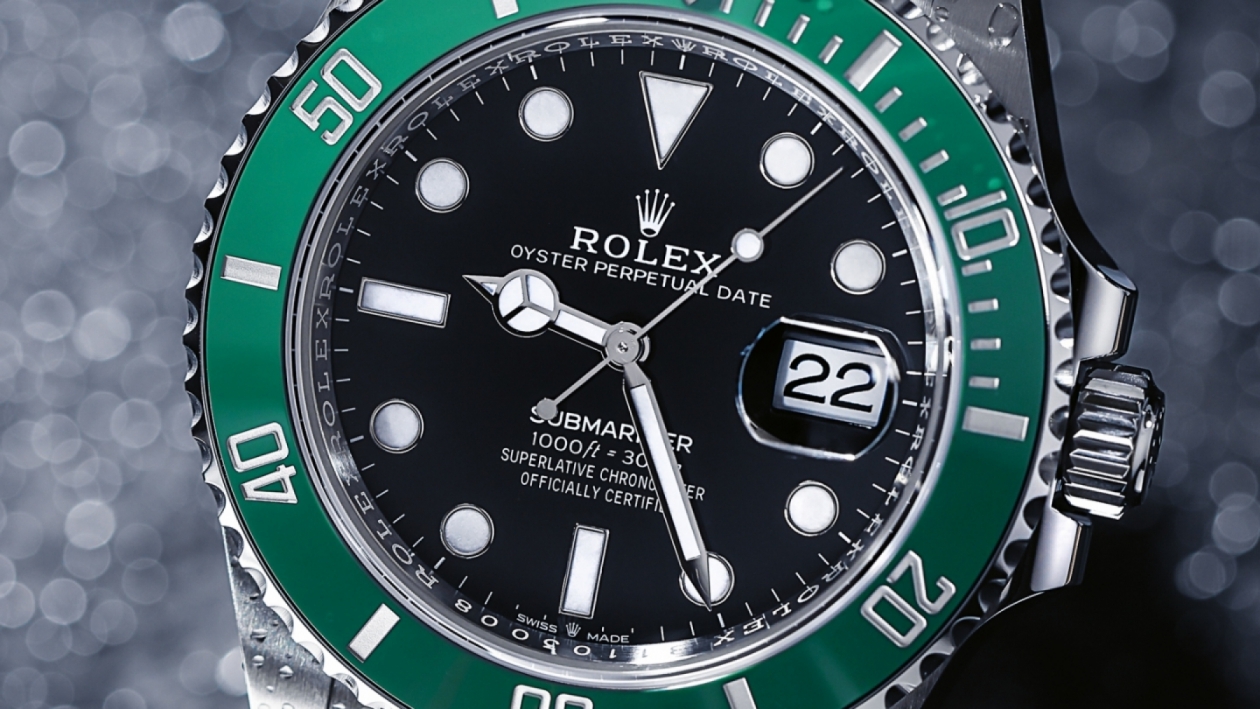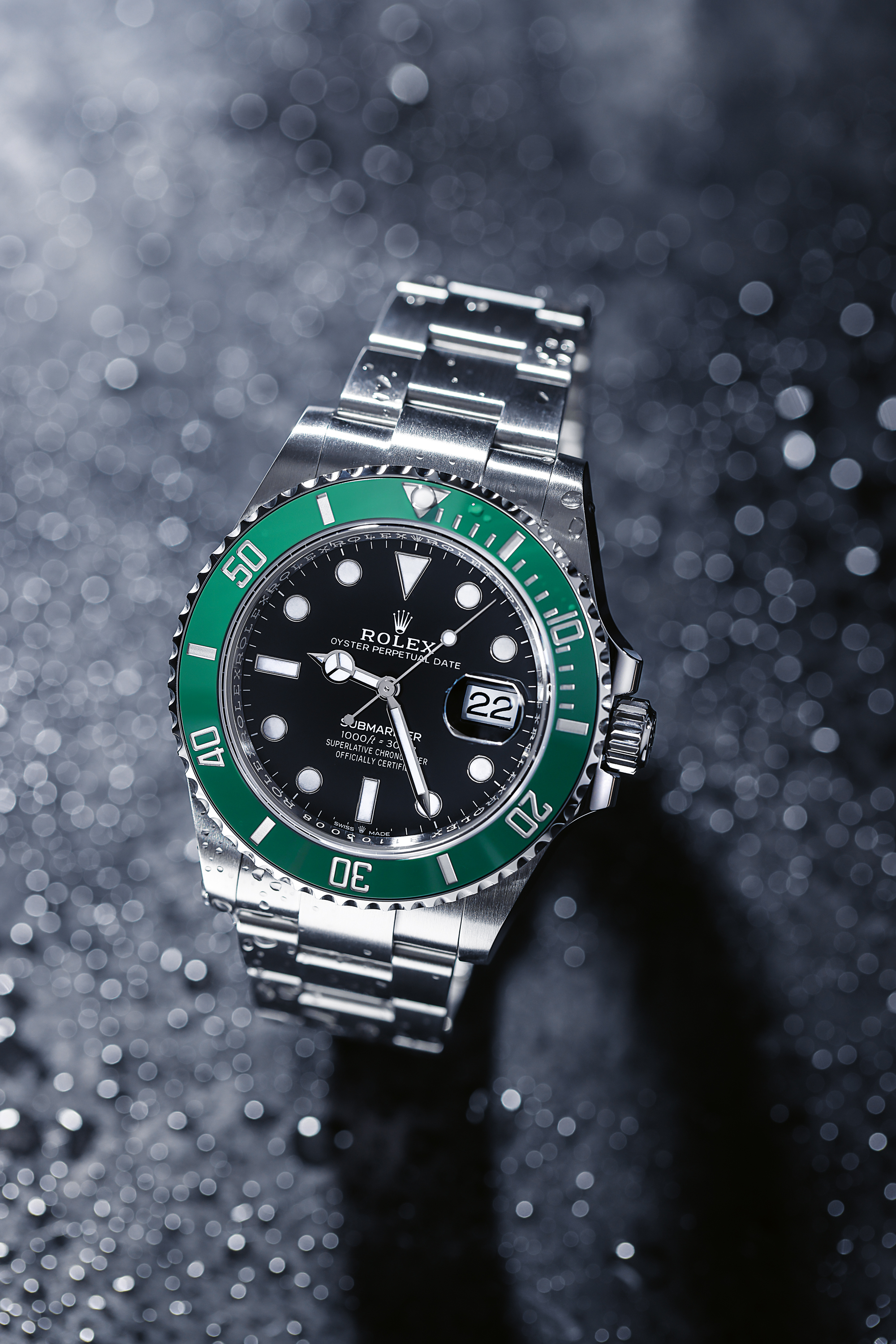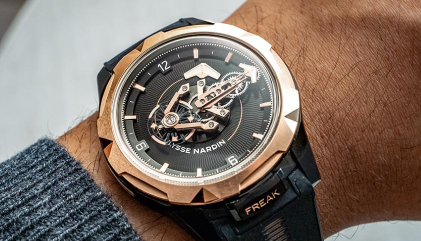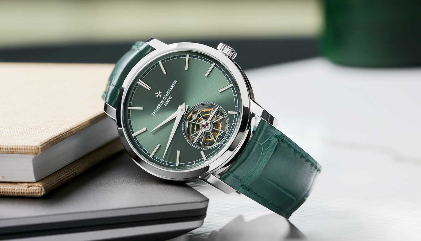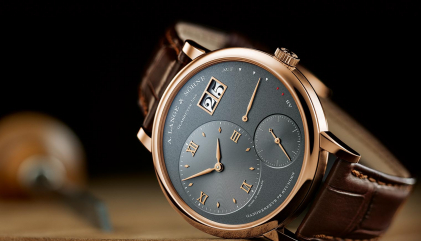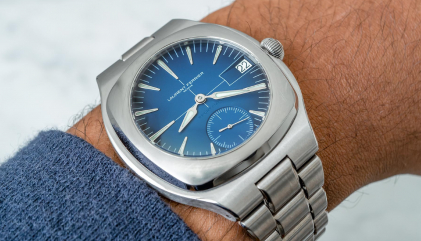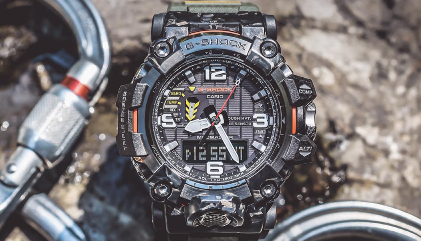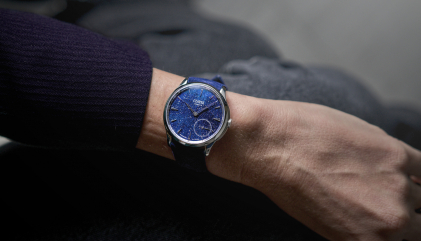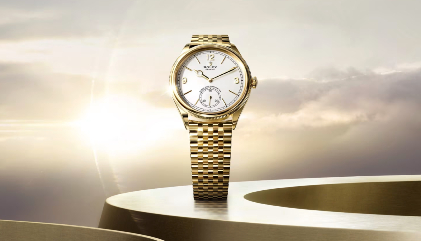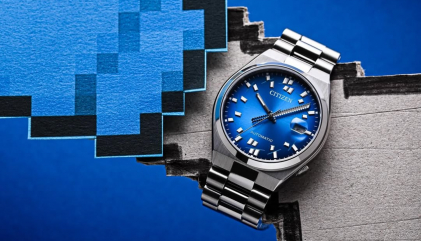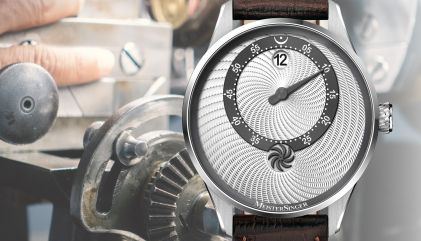Spend any time at all at a Rolex dealer and someone will come in and ask for the new Submariner with a green bezel—to no avail. Demand exceeds the supply many times over, intensifying the hype around this model. And this in turn is reflected in the prices set by traders. The green Submariner has overtaken the Daytona and the GMT-Master II ‘Pepsi’ as the most sought-after Rolex model. This is no artificial shortage. Rolex simply cannot build enough watches to satisfy all the potential customers—true not only for steel versions but also for the steel and gold and all-gold variants as well.
But why is the hype around the green version by far the greatest, even though every Submariner model has been updated? For one, it is the only steel version that is visibly different from its predecessors. The ‘Hulk’, which it replaces, has a green sunburst dial in addition to the green bezel. The dial of the new model is black. Rolex has revived a colour combination that preceded the Hulk, which existed from 2003 to 2010 and was known by the nickname ‘Kermit’, which had a black dial and green aluminium bezel inlay. A second reason is that these two green models were already much more popular than their black counterparts in the Submariner collection. Interestingly, Rolex has also returned to the earlier, more elegant case shape seen with the Kermit. The ‘Maxi’ case with its broad lugs and large crown guard was introduced with the launch of the ceramic bezel.
Larger Oyster
Initially, the dimensions have been a source of some confusion. The new Rolex model specs show a larger case, at 41mm rather than 40. But when the two models are placed side by side, the new watch almost looks smaller. In fact, the Oyster case has grown only minimally, from 40.3mm to 40.8mm. Much smaller lugs, however, make it more streamlined than its predecessor. The Oyster bracelet now measures 21mm between the lugs, rather than 20mm; the clasp is also 1mm wider.
All in all, and without direct comparison, the differences are hardly noticeable except for the more delicate lugs. Except for slightly broader hands, the dial has undergone very few changes, unless it’s the Submariner LV, like our test watch a nod to the reference number 126610LV, which stands for lunette verte (green bezel). The shiny black dial on the standard model stands in contrast to the green sunburst finish on the dial of its predecessor. Which is a better t? That remains a matter of taste. The Hulk was clearly an extrovert, while the new version has a more modest character and looks more like a tool watch. The colour of the ceramic bezel remains the same while the older Kermit watch is markedly different due to its darker aluminium track.
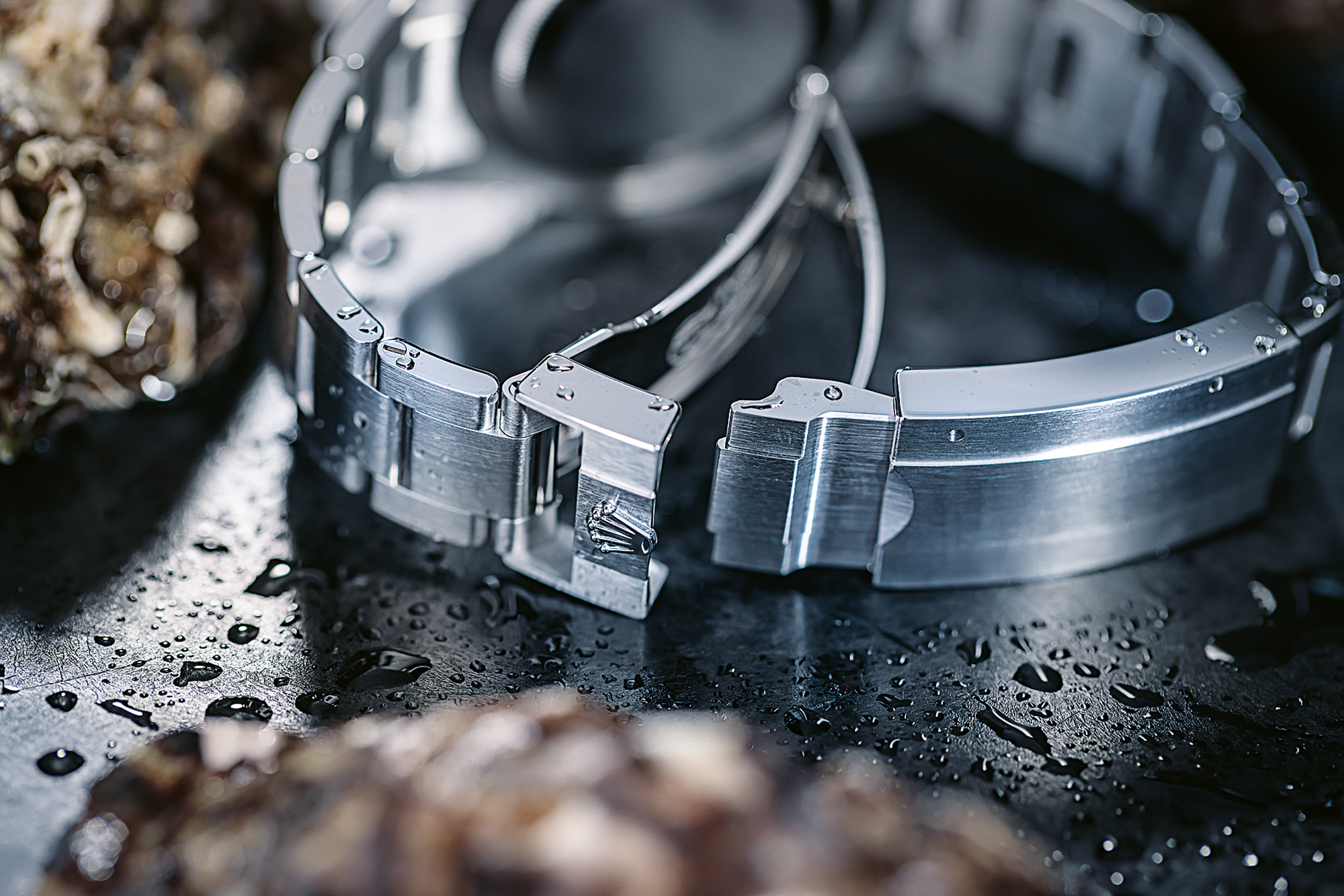
Different Calibre
Also new is the small crown on the dial between the words ‘Swiss Made’, which stands for the newer Caliber 3235. Rolex altered more than 90 per cent of the components of its 3135 calibre and was awarded 14 patents related to its development. In particular, shock absorption and reliability have been improved. Winding is more efficient and builds up a power reserve more quickly, thanks in part to the new ball bearing rotor. Now some people may be able to hear the rotor, which used to be silent.
The most important factor is the increased power reserve, from 48 hours to 70 hours. Rolex achieved this increase with a thinner barrel wall, which permits the use of a longer mainspring, as well as through the innovative Chronergy escapement, which increases the efficiency of the Swiss lever escapement by 15 per cent. This is made possible by the modi ed geometry and skeletonised form, which reduces its weight. The nickel-phosphorous alloy escape wheel, made using the LIGA process (UV lithography, electro forming, moulding), is unaffected by magnetic fields and the new balance staff also improves antimagnetic properties. The blue Parachrom hairspring made of niobium- zirconium alloy has already been used in other models, as has the Para ex shock absorber. End shake in the balance can be adjusted with a screw, and the Breguet overcoil on the hairspring ensures the constant action of the hairspring, as well as the free-sprung fine regulation using the Microstella nuts on the inside of the balance wheel. Although the new calibre, as always with the Oyster models, operates beneath a steel caseback, it is decorated with a sunburst finish on the cutout rotor and on the automatic bridge, a line finish on steel components, some bevelled edges, and polished screw heads.
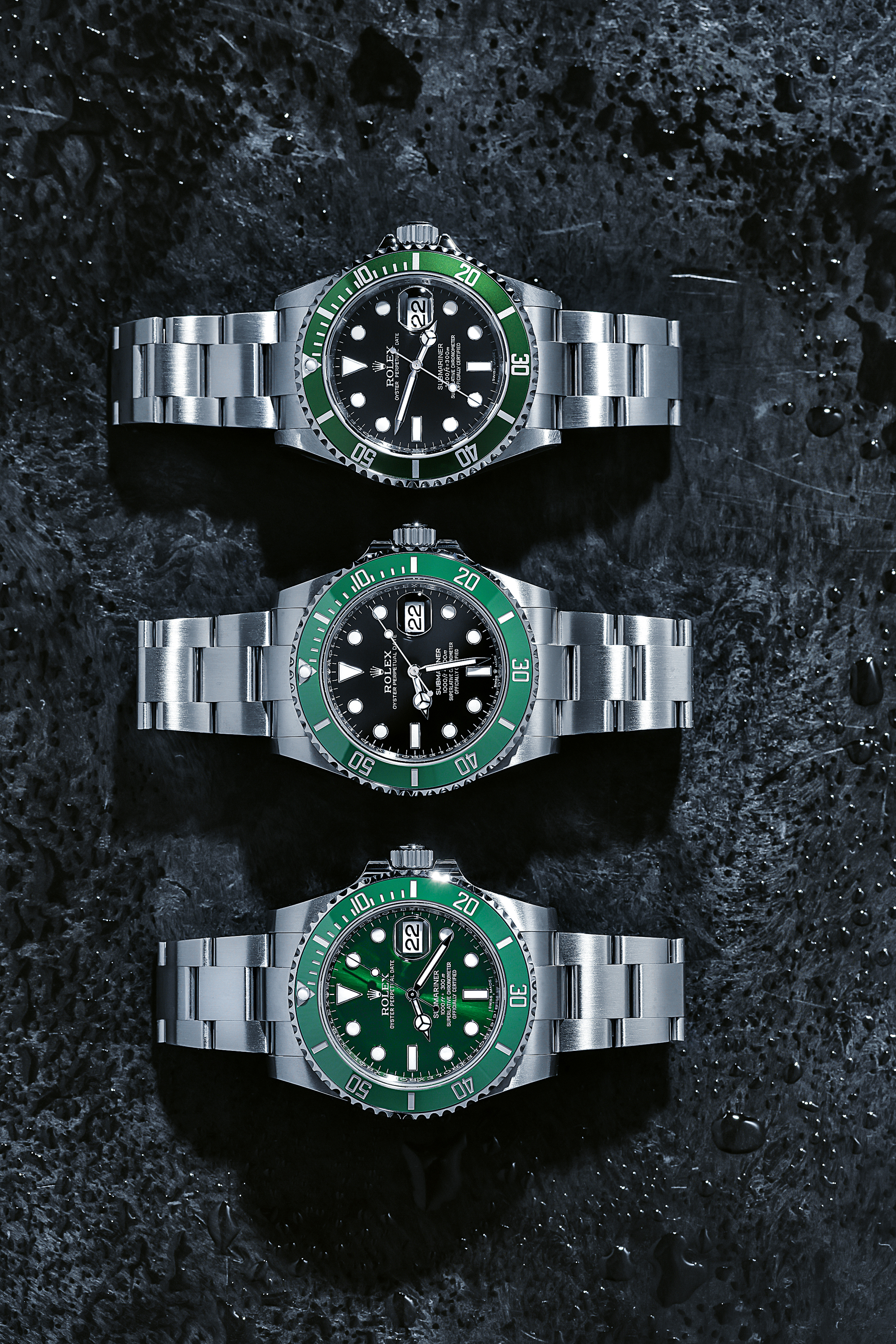
Super Chronometer?
Rolex set strict regulating specifications in 2015 with the goal of giving new life to the words ‘Superlative Chronometer’. This designation first appeared on the dial in the late 1950s when Rolex models ran even more accurately than was necessary to earn a chronometer certi cate. In addition to the chronometer certi cate from independent testing agency COSC, Rolex watchmakers adjust the cased movement to even more strict values of between -2 and +2 seconds per day.
Our test watch did not quite achieve these values on our Witschi timing machine. It was measured in every position and showed an average rate of -2.3 seconds per day. However, the rate at individual positions remained close, between -1 and -4 seconds per day.
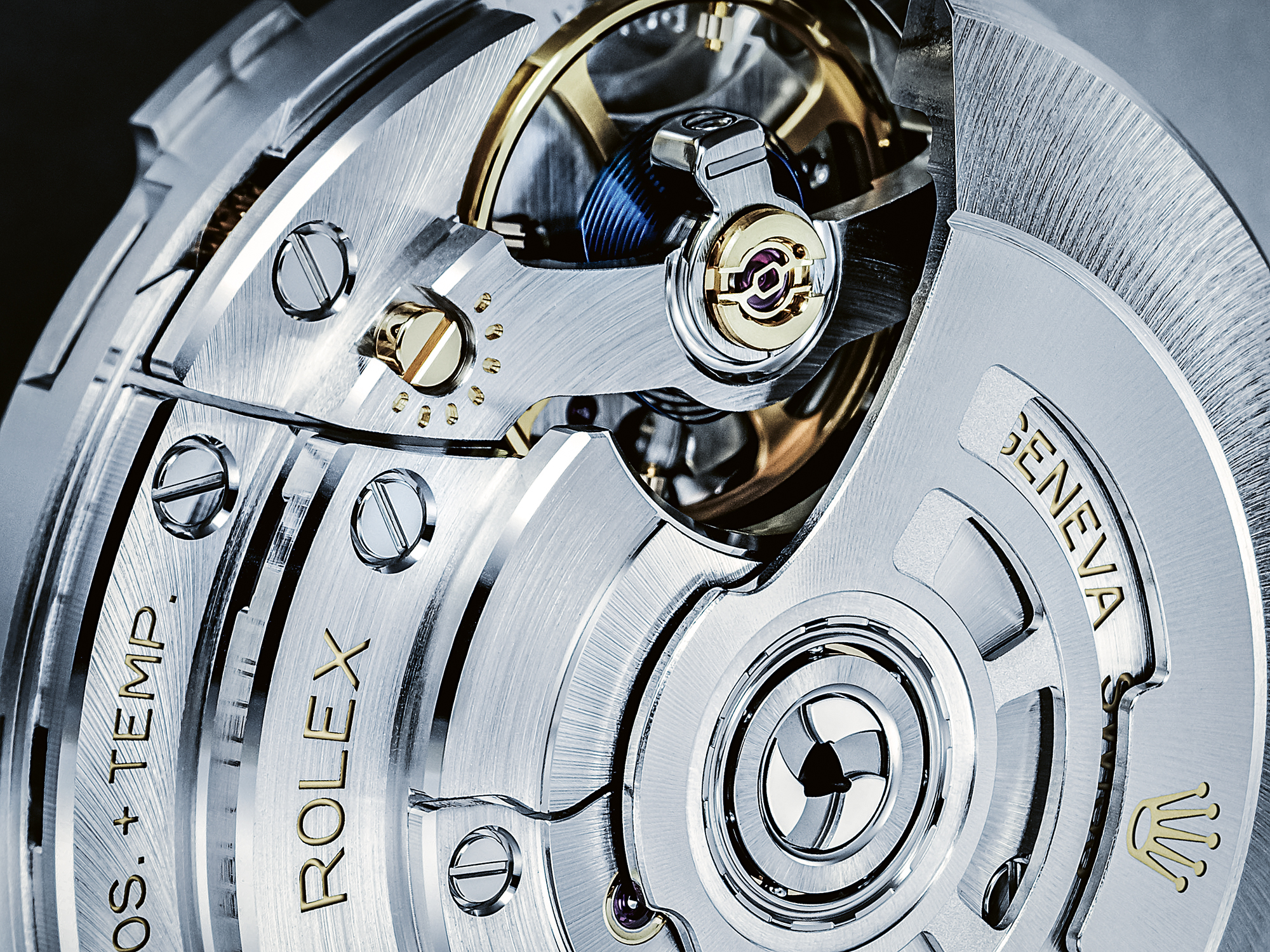
68 Years Old, but Still Modern
Although the watch was rst designed in 1953, and has undergone only minimal changes, the Submariner design continues to look modern. It certainly doesn’t look its age. This is due primarily to the smooth, re ective ceramic bezel, the shiny black dial, and the at reflective sapphire crystal. They makes it possible to wear this watch as easily with a suit as with a T-shirt and jeans.
Unfortunately, these features— especially the reflective crystal—affect legibility, which is otherwise excellent, also due to the antiglare coating on the crystal’s inner side. Because of the magnifying Cyclops lens, the date can only be read from the front, but the high magnification allows far-sighted people to see the date without their glasses.
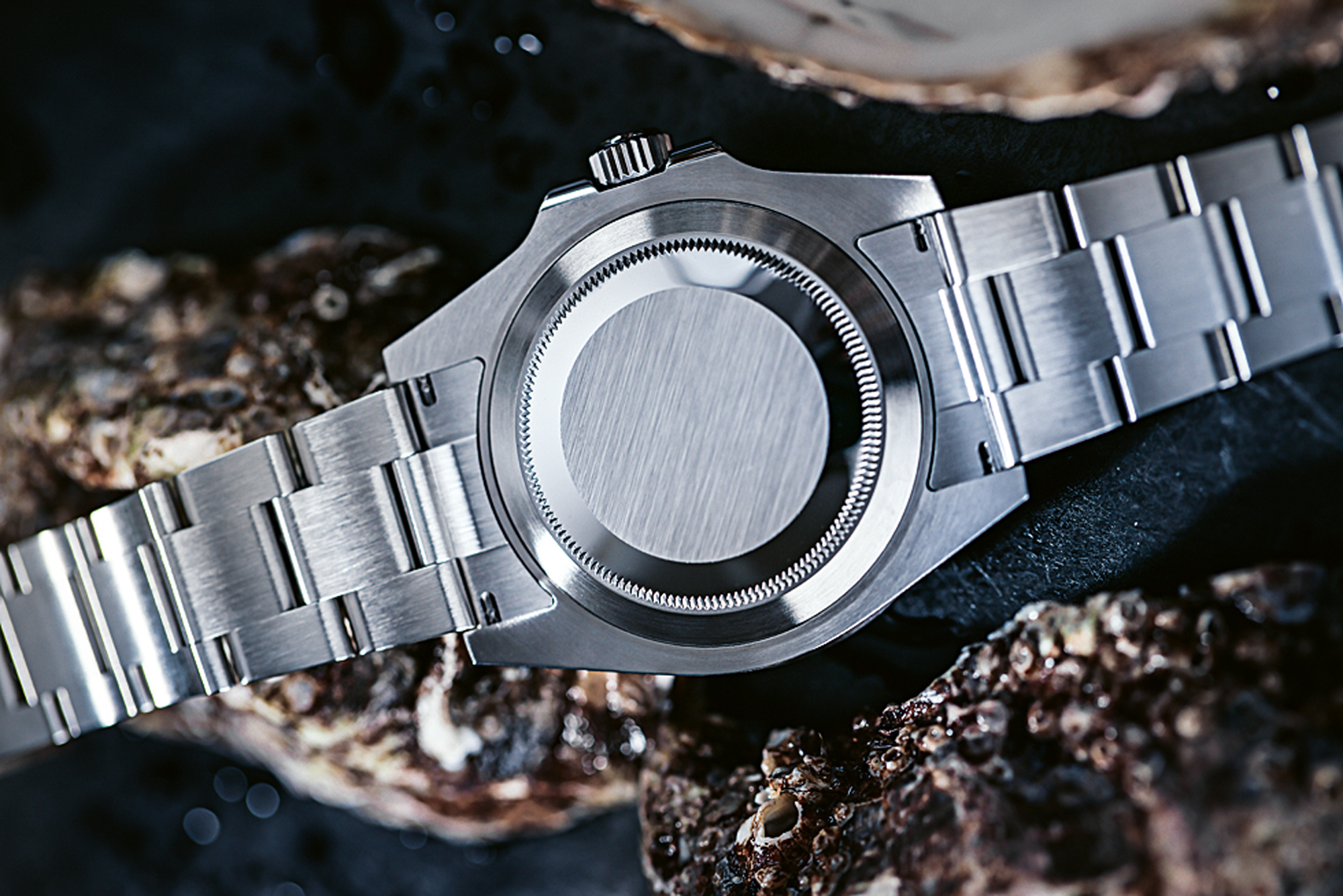
Thanks to its thin height of only 12mm, the Submariner has a slim and elegant look. It continues to offer a suf cient water resistance of 300 metres for divers. The Triplock crown has ve gaskets to keep out moisture, and the case and bracelet are made of the corrosion- resistant 904L ‘Oystersteel’.
Another highlight of the Submariner is the easily turning bezel with it rich-sounding clicks in half-minute increments. Hard ceramic ensures a scratch-free surface. Recessed numerals and markers in the ceramic ring have a thin platinum coating. This goes well with the high-quality curved white gold hands and applied markers.
Bright Luminous Material
Legibility is another perfect feature. Rolex’s own ‘Chromalight’ luminous glows bright, its cool blue colour easy on the eyes and easily seen in dim light. The luminescent triangle at 12 o’clock and bar-shaped markers at 6 and 9 o’clock provide clear orientation. The zero point on the bezel also glows brightly and the second hand has a luminous dot to provide a function check.
The smooth caseback, clean inner surface of the clasp, and supple feel of the steel bracelet all contribute to the watch’s wearing comfort. The individual links of the bracelet are curved to t the shape of the wrist. Spaces between the links remain constant, even when the bracelet is bent, which prevents pinching or pulling hairs.
The safety bar and easy-to-open lever beneath prevent unintentional opening of the bracelet. The clasp, crown, and bezel are all easy to grasp and use. The quality of workmanship and finishing are impressive here and for the watch as a whole. The sides of the bracelet, clasp, and case are polished while upper surfaces are brushed.
It speaks well for a watch when only its predecessor reveals what can be improved upon. The new movement is impressive with its substantial power reserve, even though the rate results don’t quite align with strict standards. Wearing comfort, operation, and execution are all in line, and the price is appropriate. So the hype is justified: Rolex has built the best Submariner ever. The only thing left to wish for is that you can get one.





